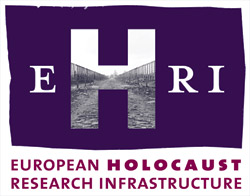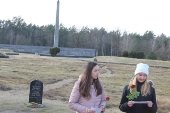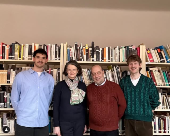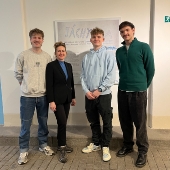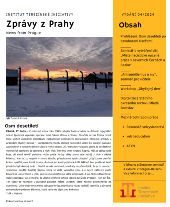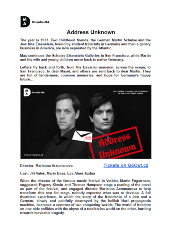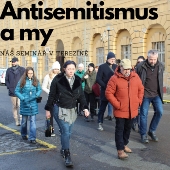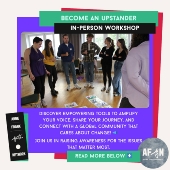Anne Frank Youth Network
A global network of youth taking action
Are you between 16 and 26 years old and do you want to make an impact both locally and globally? Do you want to raise awareness of the dangers of prejudice, discrimination, racism and anti-Semitism? Join the Anne Frank Youth Network.
The Anne Frank Youth Network is a growing global network built on volunteering, which exists to actively engage and support you in the work you find important. Inspired by Anne Frank’s diary and her lifestory, all activities aim to raise awareness, increase active citizenship, foster dialogue and democratic values today. You will act as a peer educator; this is when youth teach other youth. Together you will make a positive contribution to society!
We provide you with the tools necessary to take action and make a difference.
AFYN to me is a place of great opportunities and inspiration and people who are passionate about their work. My motivation to be a part of it is feeling the need to share important information with others.
Anička, Náchod
What will I learn?
Being a member of the Anne Frank Youth Network allows you to not only learn about history and its relevance for today, but to also,
- Learn new skills such as project managment and teamwork
- Challenge discrimination, racism and prejudice through activities and trainings
- Have an impact on your local community by creating and executing your own educational activities
- Arrange social media campaigns to create engagement among your peers
- Be part of a growing global community
I joined the Anne Frank Youth Network to learn more about issues close to my heart - Anne Frank, the Holocaust, democracy, and human rights in general. Since the beginning of November, the whole project has brought me a lot of great experiences and learning - whether it's connecting with young people all over Europe, communicating in English or preparing and leading workshops for primary school.
Antonie, Nymburk
How can I get involved?
If you are interested in becoming part of the Anne Frank Youth Network in the Czech Republic, please do not hesitate to contact us. Send us an email to the coordinator - Thomas Elmecker - or post on our social media - Instagram and Facebook.
We can provide you with further information, connect you with other interested young people from the Czech Republic and participants from previous years.
You can also find more information on the official website of the Anne Frank Youth Network and on their social media.
What's next?
After completing your first activity in your own country you will then get the opportunity to participate in a two day national training. You will learn to teach about the importance of the stories of WWII and the Holocaust. Together we explore why these stories are still relevant today, by discussing identity, prejudice, discrimination and democracy. Together with other peer educators you will get to organise your very own project.
AFYN means new opportunities for me and my future. Thanks to AFYN, I am overcoming my fear of speaking in front of many people and I even enjoy it. I really hope that I will be able to do even more in the future.
Kája, Nymburk
Want to do even more?
Once you have completed the two day course and your own project you will stay involved with the Anne Frank Youth Network. You will get the opportunity to mentor new members and independently organise more educational projects. Furthermore you will get access to further experiential and learning opportunities, such as internships at the Anne Frank House and partner organisations.
We look forward to hearing your ideas and suggestions.
Anne Frank and thousands of others. We visited the place where the fate of one of the world's most famous stories came to an end, as well as that of countless of others. The Bergen-Belsen camp was burned down after the war, but one can still hear echoes of the past. How can we learn about the horrors that have gone to ashes?
Yesterday, we welcomed Director Denise Quistorp and Sebastian Halbauer from the Austrian Cultural Forum in Prague to our premises at Jáchymova to exchange views on our respective activities and projects. This gave us the opportunity to identify common priorities in our work and to further strengthen Austro-Czech exchange through future cooperation.
This week we received a visit from Ms Krejcova (Foreign Culture of Lower Austria) and Mr Halbauer from the Austrian Cultural Forum Prague, where we were not only able to present the work of the ITI, but also make personal contacts. We were able to discuss many topics that overlap with the work of our three institutions in order to promote Austrian-Czech exchange.
The MA Theater would love to cordially invite you to the Prague premiere of the theatre play Address Unknown, based on the 1938's best selling book by Kathrine Kressmann Taylor. The MA Theater's performance is taking place on the 28th of January at 7:30 PM at Divadlo Na Prádle, Besední 487/3, Prague 1. The play is performed in English.
You can learn more about the play here or in the attachment.
The year is 1933. Two childhood friends, the German Martin Schulse and the Jew Max Eisenstein, bound by student fraternity in Germany and then a gallery business in America, are now separated by the Atlantic. Max continues the Schulse-Eisenstein Galleries in San Francisco, while Martin and his wife and young children move back to native Germany.
Letters fly back and forth, from the Bavarian mansion, across the ocean, to San Francisco, to dear Maxel, and others are sent back to dear Martin. They are full of tenderness, common memories, and hope for Germany's happy future...
Direction: Marianna Arzumanova
Cast: Mario Baas, Jiří Valeš, Eva Alner
The original script, direction, scenography and soundtrack are work of Marianna Arzumanova, the director and founder of Prague's Theatre MA. The show premiered on 18th July 2022 in Verbier, and was shown again in London, New York, Geneve and Schloss Elmau, starring world-renowned pianist Evgeny Kissin and baritone Thomas Hampson.
From December 6 to 8, 2024, we hosted the seminar Antisemitism and Us in Terezín for teachers and peer educators from the Anne Frank Youth Network (AFYN). The event was organized in collaboration with European Practitioners against Antisemitism (EPNA), and with support from the German Federal Foreign Office.
Program and Key Speakers
The seminar offered a rich program focused on how to teach about antisemitism and the Holocaust in a way that has a tangible impact while avoiding unintended antisemitic outcomes. We were honored to welcome outstanding speakers:
- Tomáš Kraus, who guided participants through the authentic environment of the Terezín ghetto, sharing his family’s stories to enrich the educational experience.
- Jakub Drábik, who gave a lecture titled What is Fascism?, exploring its origins, manifestations, and methods of prevention.
- Peter Weisenbacher, who presented FRA research and additional data on how antisemitism is perceived and experienced by members of the Jewish community in Slovakia.
📚 Educate. ✊ Empower. 🔁 Repeat.
Are you between 16 and 26 years old and do you want to be part of a global network of youth taking action? Do you want to raise awareness of the dangers of prejudice, discrimination, racism and anti-Semitism?
Join the Anne Frank Youth Network and become a member of a global community!
Inspired by Anne Frank’s diary and her lifestory, all activities aim to raise awareness, increase active citizenship, foster dialogue and democratic values today. Together with your peers you will make a positive contribution to society and to your community!
We kindly invite you to take part in our training of new youth ambassadors!







